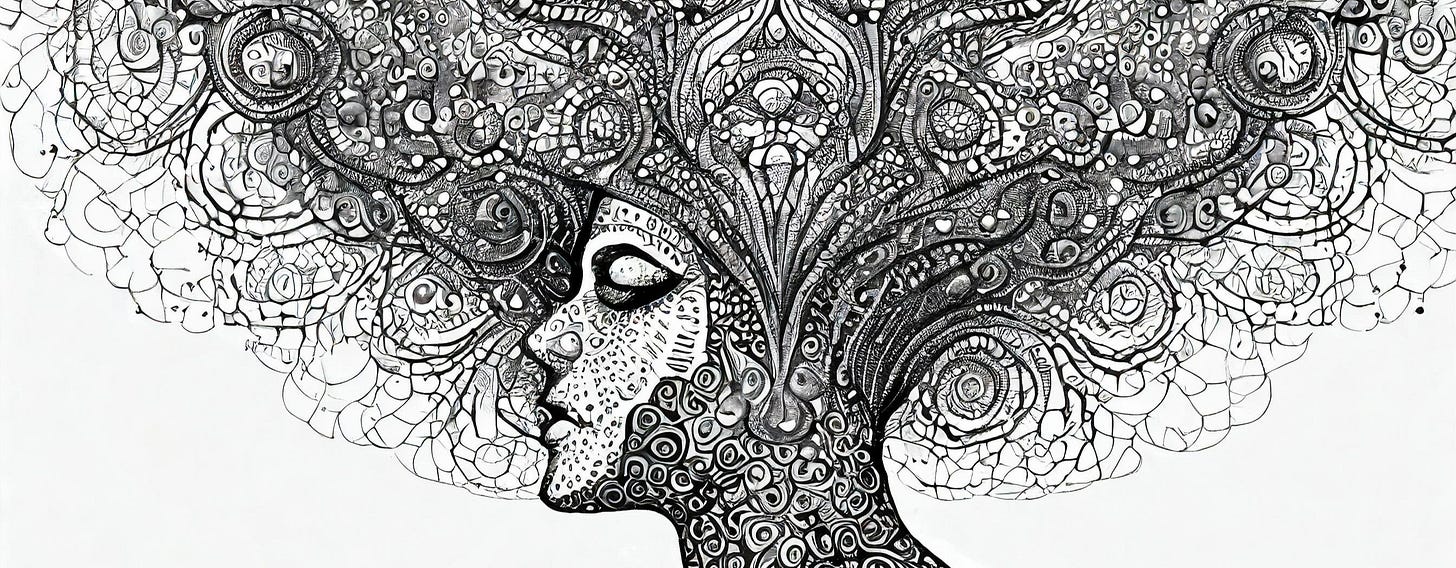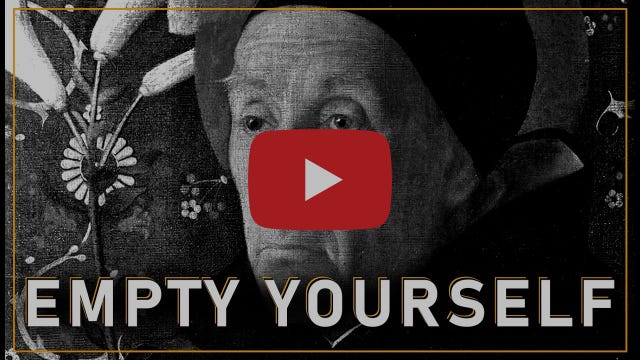[T]hought, Kasyapa, cannot be apprehended, inside, or outside, or in between both. For thought is immaterial, invisible, nonresisting, inconceivable, unsupported, and homeless. Thought has never been seen by any of the Buddhas, nor do they see it, nor will they see it…
Unable to see thought, [one] seeks to find the trend of thought, and asks himself: Whence is the genesis of thought? And it occurs to him that “where there is an object, there thought arises.”
Is then the thought one thing, and the object another? No, what is the object, just that is the thought. If the object were one thing, and the thought another, then there would be a double state of thought. So the object itself is just thought.
Can then thought review thought? No, thought cannot review thought. As the blade of a sword cannot cut itself, so a thought cannot see itself.
Moreover, vexed and pressed hard on all sides, thought proceeds, without any staying power, like a monkey or like the wind. It ranges far, bodiless, easily changing, agitated by the objects of sense…
The stability of thought, its one-pointedness, its immobility, its undistraughtness, its one-pointed calm, its nondistraction, that is on the other hand called mindfulness as to thought.
— From Siksāsamuccaya (Translated from the Sanskrit by Edward Conze)
For many of us, the habit of clinging to or analyzing each thought can lead to a sense of restlessness or anxiety. But what if we could simply observe thoughts without trying to control or define them? Imagine what it might feel like to let go of the need to “solve” each thought.
The next time you feel pulled by a thought, try pausing and noticing it without judgment or analysis. Like waves on the shore, thoughts can be acknowledged without needing to grasp them. Over time, this mindful presence allows us to meet life with more openness, helping us connect to each moment with a sense of peace and acceptance.
May we hear the silence beneath every thought,
Simeon
Meister Eckhart: Realizing Your True Nature
Meister Eckhart’s teachings on spiritual poverty reveal a paradox at the heart of spiritual life. In this video, we examine how desiring nothing, knowing nothing, and possessing nothing leads to union (nay, identity) with the divine mystery.
Explore the rich insights of one of Christianity’s greatest mystics and see how they resonate with other spiritual traditions.



